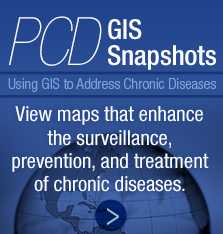
Tools and Techniques
![]() The topic is of interest to PCD readers.
The topic is of interest to PCD readers.
![]() The topic fits the mission of the journal to address the interface between applied prevention research and public health practice in chronic disease prevention.
The topic fits the mission of the journal to address the interface between applied prevention research and public health practice in chronic disease prevention.
![]() The article is written intentionally as an instructional article; it focuses on teaching readers how to apply a particular method.
The article is written intentionally as an instructional article; it focuses on teaching readers how to apply a particular method.
![]() The article is well suited as a Tools and Techniques. It is not better suited as another type of article, such as Original Research, Community Case Study, or Essay.
The article is well suited as a Tools and Techniques. It is not better suited as another type of article, such as Original Research, Community Case Study, or Essay.
![]() The title correctly reflects the content of the article
The title correctly reflects the content of the article
![]() The abstract correctly reflects the content of the article.
The abstract correctly reflects the content of the article.
![]() The public health context of the “tool” or “technique” is explained.
The public health context of the “tool” or “technique” is explained.
![]() Definitions of terms specific to the context of the manuscript are provided.
Definitions of terms specific to the context of the manuscript are provided.
![]() The tool or technique is described in such a way that allows others with sufficient skills and interest to implement it on their own.
The tool or technique is described in such a way that allows others with sufficient skills and interest to implement it on their own.
![]() The manuscript is clearly and concisely written and is free of jargon.
The manuscript is clearly and concisely written and is free of jargon.
![]() The article is well organized.
The article is well organized.
![]() The citations are up to date and relevant.
The citations are up to date and relevant.
![]() All statements requiring citations have citations.
All statements requiring citations have citations.
![]() Tables, figures, illustrations, photographs, or other visuals are well constructed, easy to comprehend, and visually appealing.
Tables, figures, illustrations, photographs, or other visuals are well constructed, easy to comprehend, and visually appealing.
![]() The strengths and weaknesses of the tool or technique are objectively evaluated.
The strengths and weaknesses of the tool or technique are objectively evaluated.
![]() If appropriate, areas of future research are suggested.
If appropriate, areas of future research are suggested.
![]() The article ends with a clear, concise conclusion.
The article ends with a clear, concise conclusion.
![]() The text of the article has no more than 3,000 words; the abstract, no more than 250 words; references, no more than 40.
The text of the article has no more than 3,000 words; the abstract, no more than 250 words; references, no more than 40.
The opinions expressed by authors contributing to this journal do not necessarily reflect the opinions of the U.S. Department of Health and Human Services, the Public Health Service, the Centers for Disease Control and Prevention, or the authors' affiliated institutions.
- Page last reviewed: February 6, 2015
- Page last updated: February 6, 2015
- Content source:
- Maintained By:



 ShareCompartir
ShareCompartir